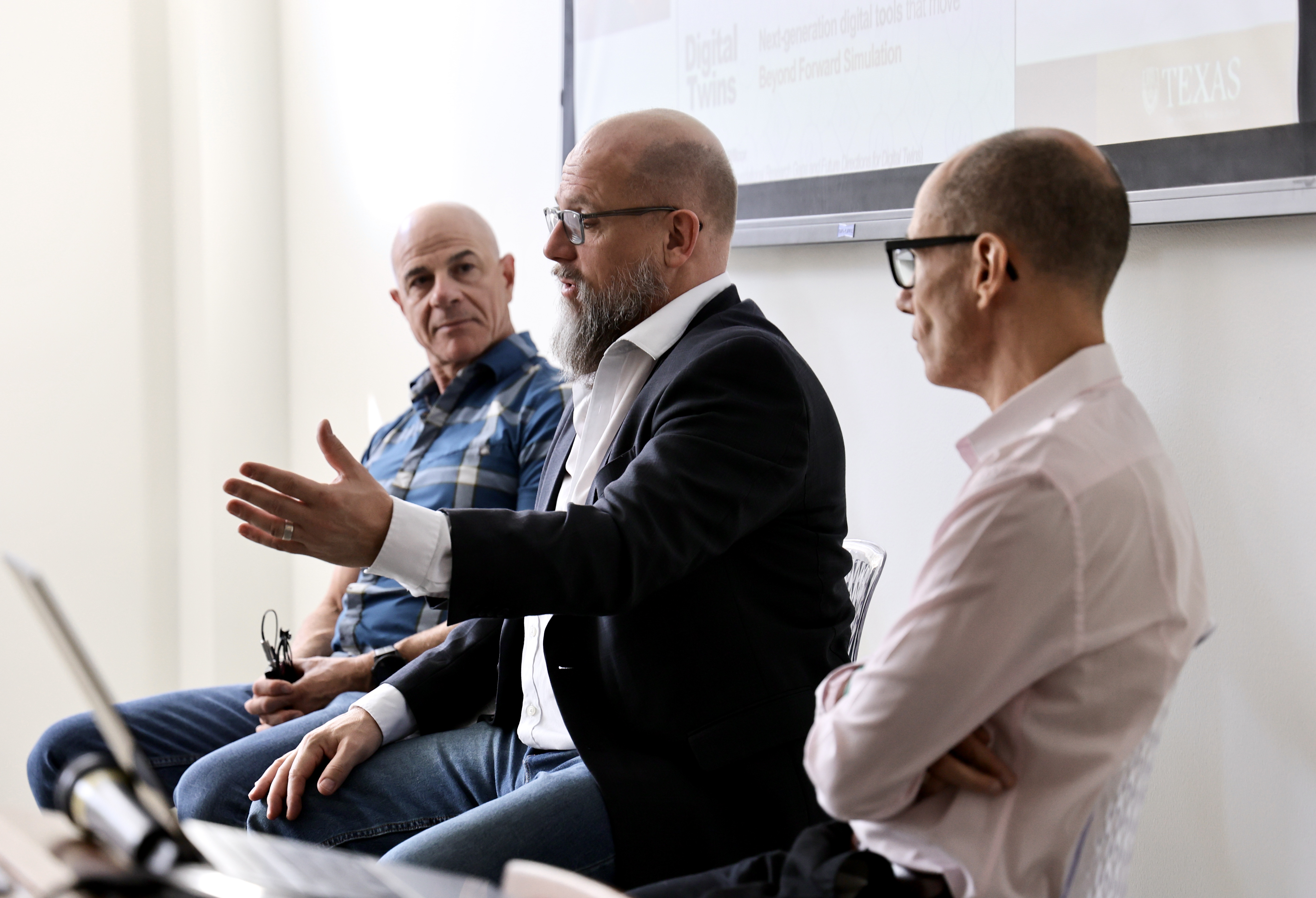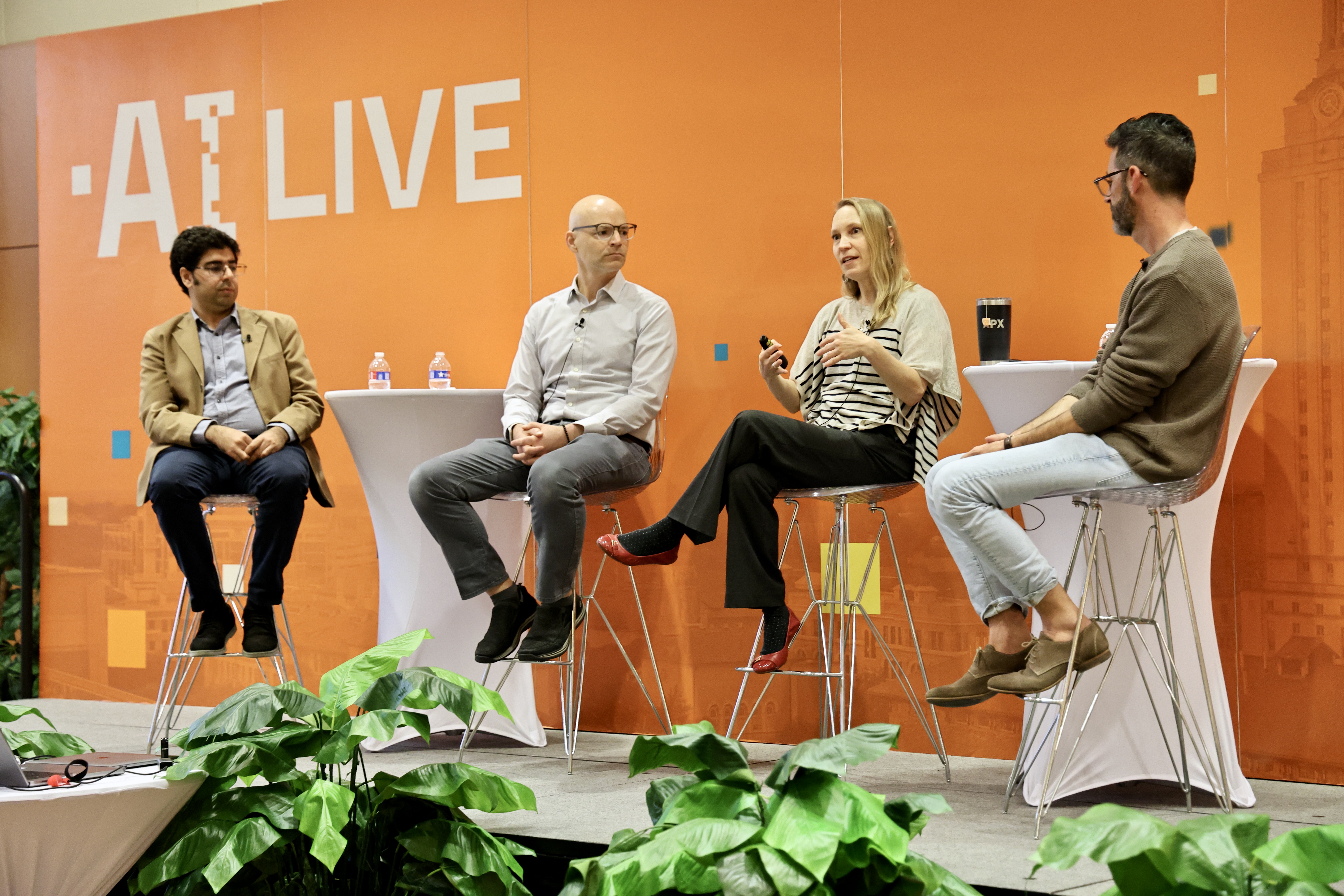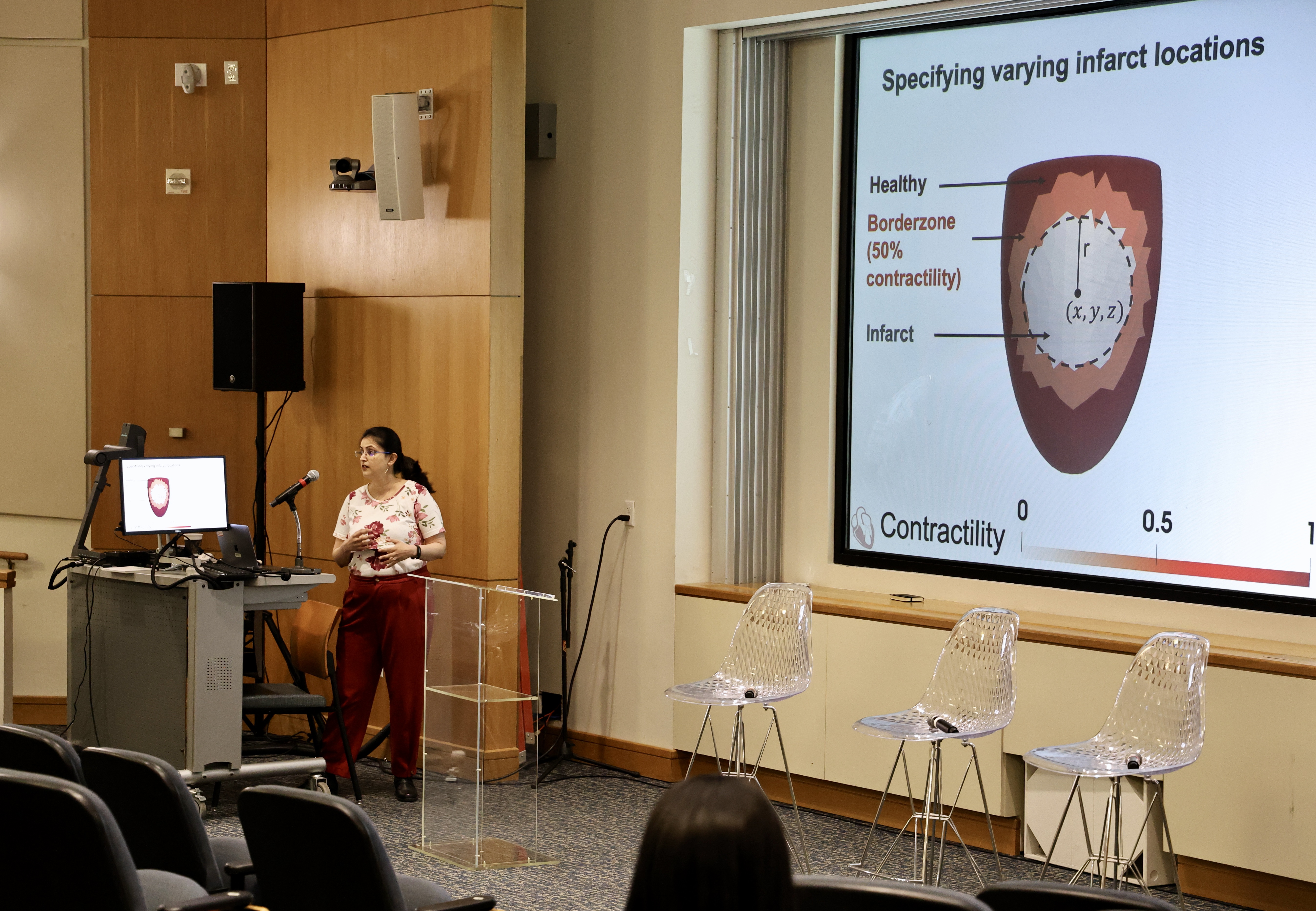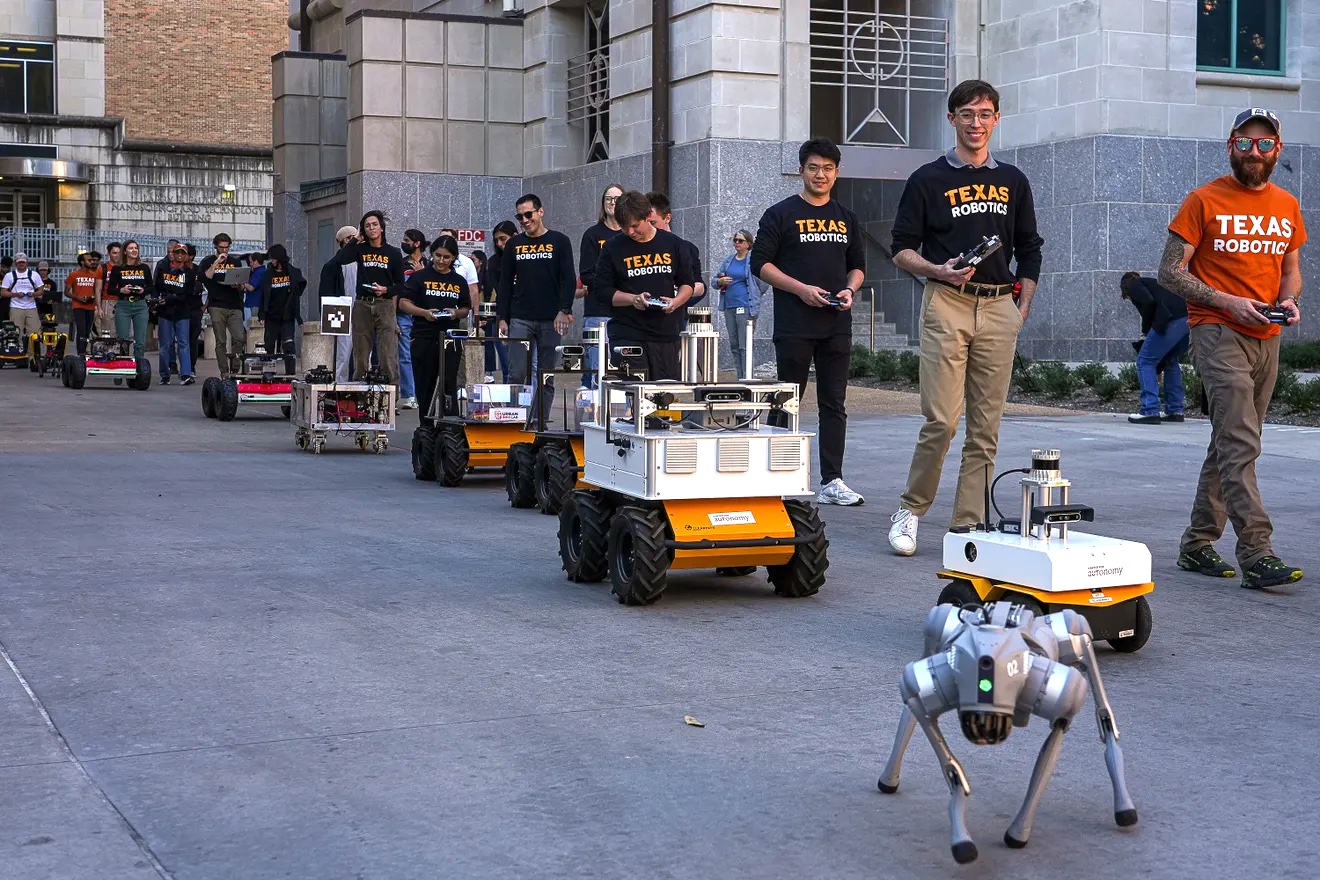While artificial intelligence (AI) has been around since the 1950’s, it has become the ‘it’ topic, exploding even further with the 2022 arrival of ChatGPT. AI is infiltrating all aspects of technology, and our lives. While it offers the potential to improve everything from mundane tasks to cutting-edge improvements and new discoveries in healthcare, climate science, and the cosmos, many questions remain, such as building trust, and maintaining transparency and accuracy in this evolving relationship with AI.
Designating 2024 the Year of AI, The University of Texas at Austin showcased groundbreaking research and highlighted the interdisciplinary approach to AI, and provided discourse for the unanswered questions that lay ahead. The year-long initiative was capped off with AI LIVE, a three-day showcase, held Nov. 13-15, with events featuring expert panels, innovations and inspiration in the world of AI.
Faculty and researchers from the Oden Institute for Computational Engineering and Sciences led three panels covering Earth sciences, astronomy and medicine. Graduate students representing the Oden Institute’s Center for Autonomy participated in the robotics parade, marching robots of all shapes and sizes down Speedway Plaza, bringing an energetic conclusion on the final day of AI LIVE.



